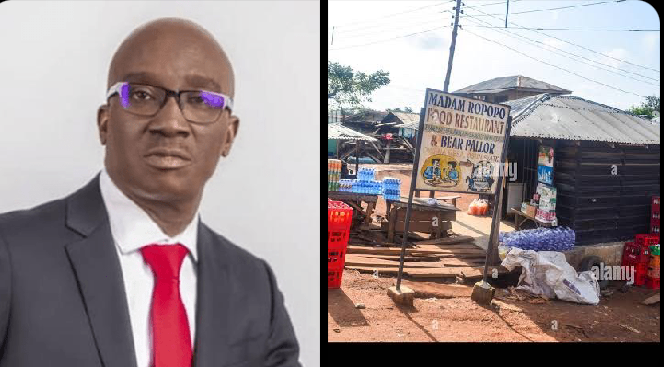
Edo Government Cracks Down on Lounges and Bars Without Valid Permits

In a bold and sweeping move that has sent ripples across the hospitality industry in Edo State, the state government has announced its intention to clamp down on all lounge, nightclub, and outdoor bar owners operating without valid building or development permits. This directive, which comes into effect immediately, was made public on Wednesday, sparking a mixture of concern, confusion, and compliance panic among nightlife operators in Benin City and beyond.
The announcement was delivered through a statement issued by the Edo State Ministry of Physical Planning, Housing, Urban and Regional Development. According to the ministry, this decisive action forms part of a broader strategy by the Governor Godwin Obaseki-led administration to sanitize the urban development landscape, ensure public safety, and enforce strict compliance with established building codes and planning regulations. Authorities say the campaign will also help restore order to residential neighborhoods increasingly disturbed by unauthorized commercial activity.
The government emphasized that this is not a witch-hunt but a long-overdue measure designed to enforce existing laws that many operators have continued to ignore, sometimes with reckless disregard for the safety and serenity of their immediate environments. The statement noted that several entertainment businesses, including popular clubs and roadside bars, have continued to spring up in areas zoned exclusively for residential use, often without recourse to the legal processes required to secure approval for such ventures.
Residents of many affected neighborhoods have long expressed frustration at the noise pollution, traffic congestion, and rising insecurity associated with unregulated nightlife establishments. In several communities, homeowners have petitioned the government, decrying what they call “a takeover of once peaceful residential areas” by unauthorized commercial interests. The government says the crackdown is partly in response to these rising complaints and seeks to restore confidence in urban regulation and community welfare.
Government officials have also highlighted serious safety risks associated with the proliferation of unapproved lounges and bars. A number of these establishments have reportedly been constructed with substandard materials, lack adequate emergency exits, and pose fire hazards due to haphazard electrical wiring and insufficient firefighting provisions. Authorities argue that without strict enforcement of building standards, the potential for tragic incidents remains dangerously high.
In the coming days, a multi-agency task force comprising officers from the Ministry of Physical Planning, the Edo State Internal Revenue Service, the Edo State Waste Management Board, and security agencies will commence inspections and enforcement visits across the state. Business owners found operating without the necessary permits will face stiff penalties, including fines, immediate closure, and possible demolition of illegally constructed structures.
The announcement has sparked an immediate wave of reactions from stakeholders in the hospitality and entertainment sectors. While some operators acknowledge the need for regulatory compliance, others have expressed concern over what they describe as the suddenness of the directive and a lack of prior consultation with industry players. Several club and lounge owners, speaking under condition of anonymity, told our reporters that they feel targeted and worry about the economic implications of abrupt enforcement actions, especially at a time when many businesses are still recovering from the financial toll of the COVID-19 pandemic.
“This came out of nowhere,” said one bar owner in GRA, Benin City. “We are not against regulations, but there should be a grace period, or some kind of support to help us meet the new requirements. Shutting us down overnight will only cause more hardship and job losses.”
Others point to what they allege is selective enforcement, questioning why some larger, politically connected establishments continue to operate unimpeded despite similar violations. The government has not directly addressed these claims but maintains that the enforcement exercise will be impartial and city-wide.
In response to growing concerns, the Ministry has urged affected business owners to approach its offices to regularize their documentation and seek guidance on how to comply with urban planning standards. Officials say a “fast-track approval desk” will be set up to assist genuine operators in navigating the permitting process efficiently.
Legal experts say the government’s actions are fully backed by law, citing provisions in the Edo State Urban and Regional Planning Law that prohibit any physical development or change of use of land without express approval from relevant authorities. According to them, failure to comply with such laws not only undermines public planning efforts but also exposes both operators and patrons to grave dangers.
Yet, as enforcement looms, a larger conversation is unfolding among citizens and policy analysts about the need for a more holistic approach to regulating the state’s growing hospitality sector. Some argue that while compliance is non-negotiable, there must also be room for inclusive dialogue, capacity building, and incentives that encourage voluntary adherence rather than forced compliance.
The clampdown comes at a time when Edo State is positioning itself as a cultural and tourism hub in Nigeria, with a number of initiatives designed to attract local and foreign visitors. Critics worry that aggressive enforcement could dent investor confidence if not handled with transparency and fairness. However, supporters insist that enforcing development laws is a necessary foundation for sustainable urban growth and international credibility.
On social media, the news has ignited heated debates, with users divided between supporting the government’s position and criticizing what they view as a potentially disruptive action against small businesses. Hashtags like #EdoPermitClampdown and #SaveOurBars have begun trending on X (formerly Twitter), with both residents and business owners airing strong opinions.
As of press time, several lounge operators have already begun taking steps to bring their establishments into compliance, with queues reportedly forming outside the Ministry of Physical Planning's offices. Others are anxiously awaiting the task force’s next moves, unsure whether they will be allowed to continue operating or be forced to shut their doors indefinitely.
In what appears to be a defining moment for urban regulation in Edo State, the weeks ahead will likely reveal whether the government’s resolve can achieve its stated aims without alienating key sectors of the local economy. For now, the message is clear: without a valid permit, the party is officially over.


